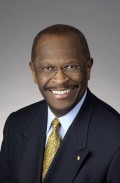The Sarah Palin Rape Kit Controversy

Did Sarah Palin really make rape victims in Wasilla, Alaska pay for their own rape kits during her term as mayor?
The evidence is inconclusive, but points to yes.
The Background
Alaska has the highest rate of rapes in the nation. Rates are particularly high among the indigenous population. In Anchorage, Native Alaskans are more than 9.7 times more likely than other races to be sexually assaulted. Forensic rape kits are used to collect evidence after a reported or suspected rape. They cost anywhere from $300 up to $1200.
When Sarah Palin was elected mayor of Wasilla, Alaska, the budget requested by then-Chief of Police Irl Stambaugh included funds to pay for rape kits. In 1997, however, Palin fired Stambaugh, stating that "...I do not feel I have your full support in my efforts to govern the city of Wasilla." In his place, she hired a man named Charlie Fannon.
Three years later, rumors in Alaska began to spread that some municipalities were charging women for their own rape kits, the moral equivalent of forcing a murder victim's family to pay for the investigation. When Eric Croft, a Democratic Alaskan Legislator, learned of the claims, he drafted HB 270, which made it illegal for law enforcement agencies to bill victims or victims' insurance policies for examinations used to collect evidence of sexual assault.
HB 270 was passed by the legislature and signed into law by then-Governor Tony Knowles in 2000.
Wasilla was not the only town believed to follow the practice (one of the few examples on public record occurred in Juneau), nor is it isolated to Alaska. However, Wasilla Chief of Police Charlie Fannon was one of the most vocal opponents of the bill.
"In the past we've charged the cost of exams to the victim's insurance company when possible. I just don't want to see any more burden put on the taxpayer," Fannon said. According to Fannon, the new law will cost the Wasilla Police Department approximately $5,000 to $14,000 a year to collect evidence for sexual assault cases. "Ultimately it is the criminal who should bear the burden of the added costs," Fannon said. (Source)
Were any rape victims actually charged?
Rape statistics are vague for the city of Wasilla, lumped together under the heading of "Sexual Assaults (including all associated sex crimes)." Between 1997 and 1999, 38 "Sexual Assaults" are listed on the City of Wasilla's website.
Uniform Crime Reports of Wasilla lists one reported rape in 2000 (compared to 10 "Sexual Assaults" on the city's website), but prior to 2000 shows data only for one year in every five. In 1995, the year before Palin took office, there were no rapes reported.
Wasilla Mayor Dianne M. Keller, in an official letter available on the City of Wasilla's website, stated that "The Finance Department searched all financial records on our system for fiscal year 2000, 2001 and 2002. There are no records of billings to or collections from rape victims or their insurance companies in our system."
However, HB 270 was passed in 2000, so it would have been illegal if Wasilla had billed rape victims between 2000 and 2002.
Additionally, it is unlikely that the town of Wasilla would have records of billing victims in the first place. Rape exams are performed by hospitals and, typically, the hospital then bills the police or other local agency. In the case of Wasilla, the police did not start billing the victims, they stopped paying the hospital, forcing the hospital to seek compensation through the victim's insurance company. If the victim lacked insurance, the charges would then have been passed on to her.
Dr. Colleen Murphy, a former member of the Alaska Violent Crimes Compensation Board, in the video shared above, claims of the period between 1997 and 1999 that "There is no question. I was there. I saw claims coming to our board. Sexual assault victims were appealing to our committee to have their forensic exams paid for by the Violent Crimes Compensation Board."
USA Today also reported the words of Peggy Wilcox, a legislative staffer who worked on HB 270 with Croft: "It was more than a couple of cases, and it was standard practice in Wasilla. [...] If you were raped in Wasilla, this was going to happen to you."
The Mat-su Valley (including Wasilla) Frontiersman, in a May 23, 2000 article written around the time of HB 270's passing, seems to corroborate Murphy and Wilcox's statements that rape victims were charged. The Frontiersman states: "While the Alaska State Troopers and most municipal police agencies have covered the cost of exams, which cost between $300 to $1,200 apiece, the Wasilla police department does charge the victims of sexual assault for the tests."
Fannon's own admission that "In the past we've charged the cost of exams to the victim's insurance company when possible" would also appear to suggest that rape victims (or their insurance companies) were in fact charged.
Was Sarah Palin Aware of Fannon's Policy?
Sarah Palin's spokeswoman Maria Comella recently stated that Palin "does not believe, nor has she ever believed, that rape victims should have to pay for an evidence-gathering test," and recent investigations, such as one by CNN's Jessica Yellin, have found no direct evidence that Palin knew of Fannon's policy of billing rape victims.
However, the size (or lack thereof) of Wasilla makes it difficult to believe that Palin was completely unaware of what was going on. Croft has stated that, "I find it hard to believe that for six months a small town, a police chief, would lead the fight against a statewide piece of legislation receiving unanimous support and the mayor not know about it."
More significantly, Palin did personally sign a budget for the 2000 fiscal year that cut the funding provided for rape kits under Stambaugh. The budget also contained numerous other cuts to Wasilla public services.
Essentially, because her signature was on the budget, Palin either agreed to the funding cuts that would shift costs to the victims, or she signed off on a document she didn't bother to read. Either case is troubling.








